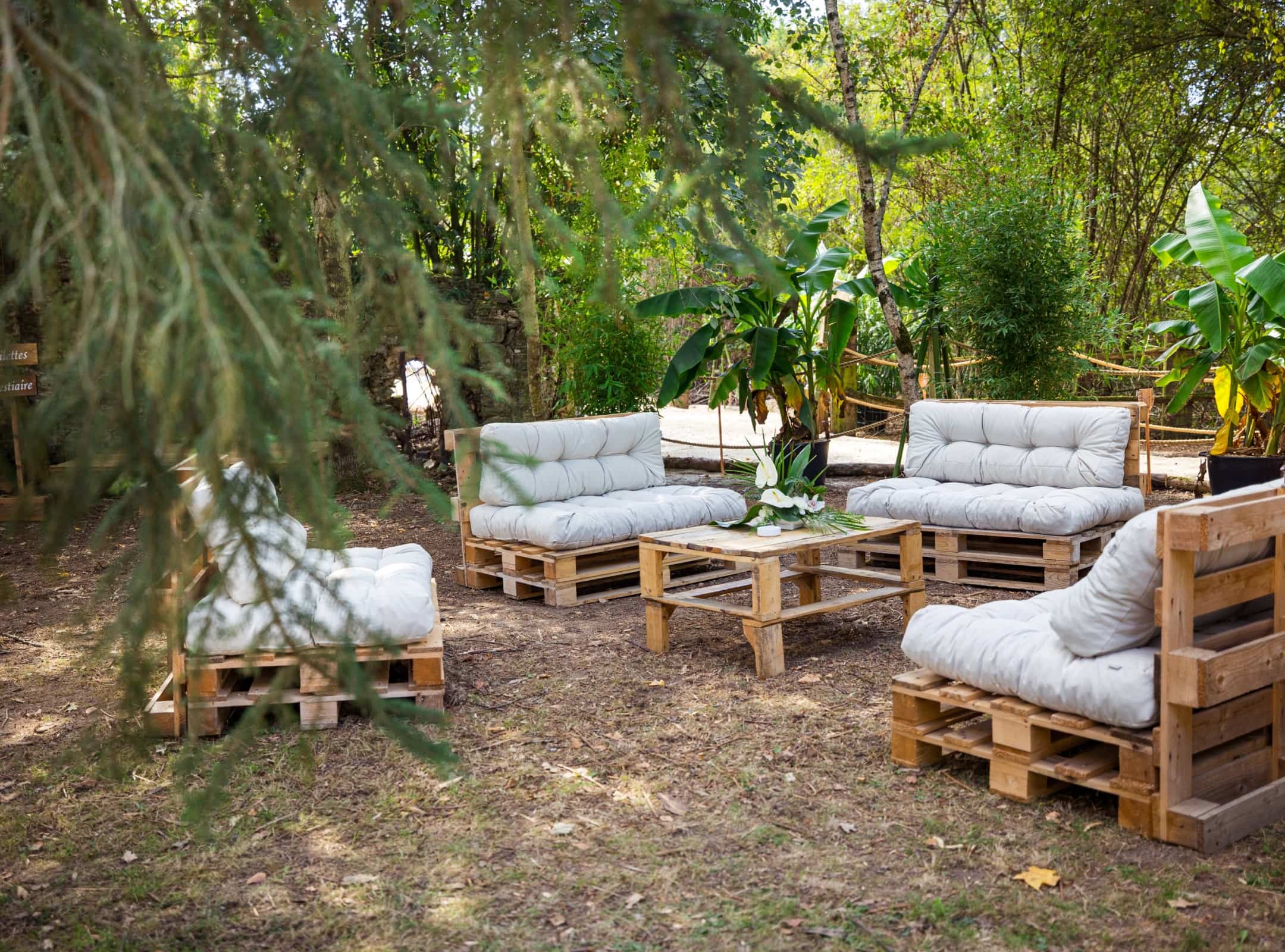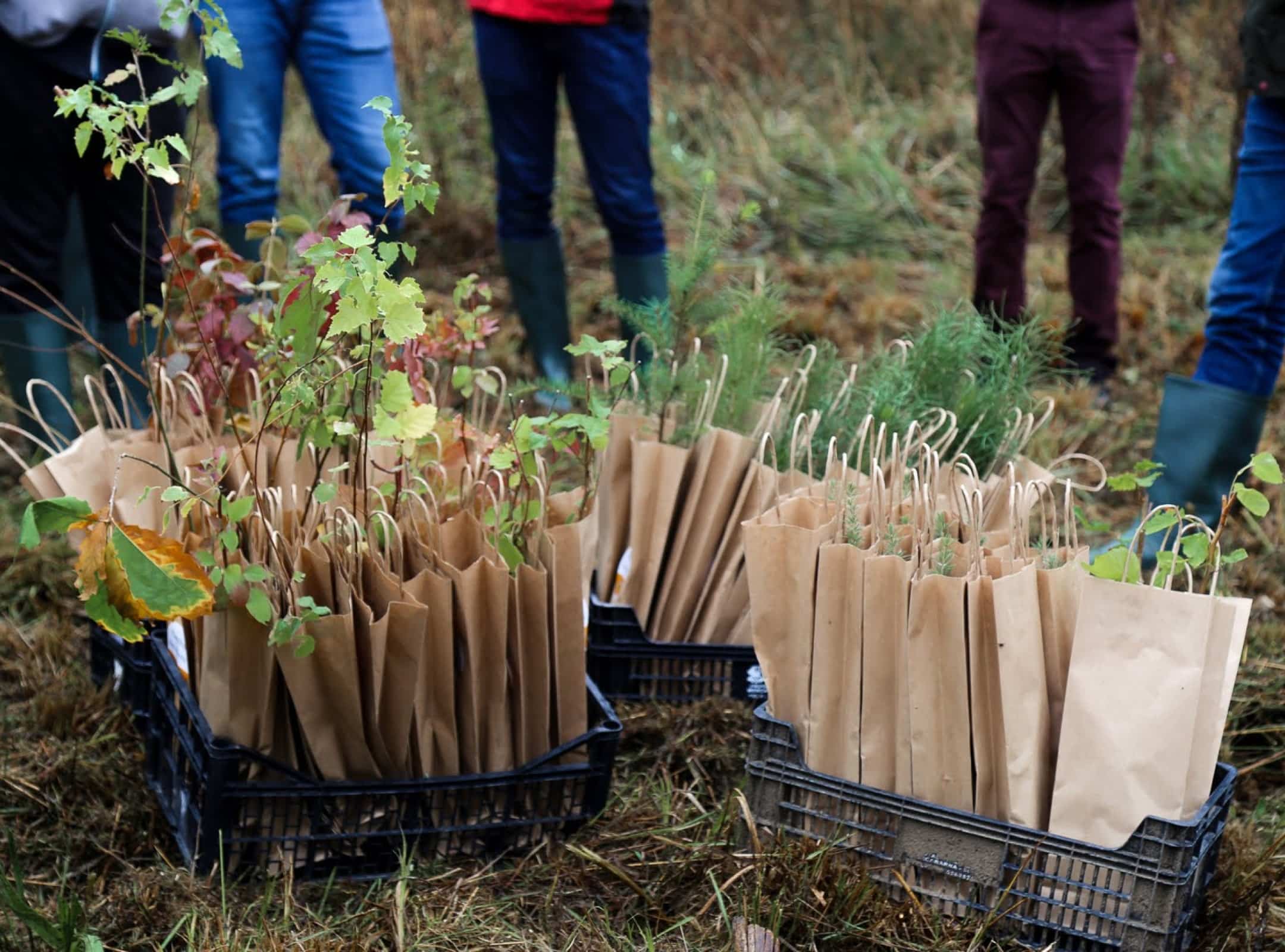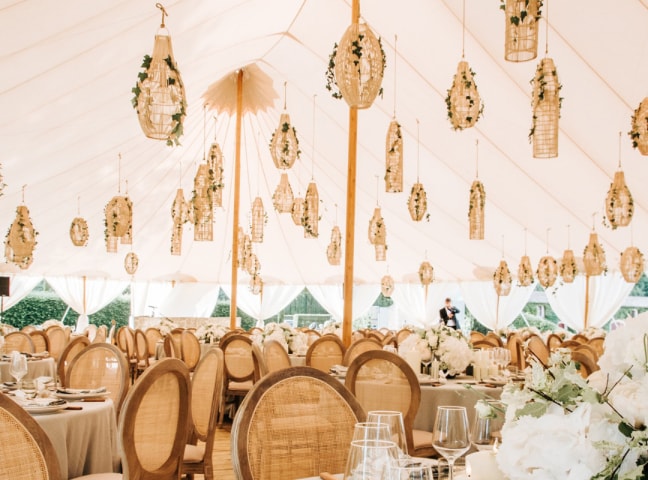Organizing an event often leaves a significant environmental footprint: waste, energy consumption, transportation… However, it is possible to take a more sustainable approach without compromising the guest experience. Far from being a constraint, hosting an eco-friendly event can be a real asset: a way to stand out, attract clients increasingly aware of these issues, and above all, show that a successful event can also be environmentally responsible. Eco-friendly venues, organic catering, recycled furniture… Here’s the complete guide to organizing an eco-responsible event where creativity meets sustainability!
1. Establishing the Foundations of an Eco-Friendly Event
Setting a Vision and Eco-Friendly Goals
The first step is to set clear commitments: waste reduction, resource optimization, guest awareness… Every event has its own characteristics, so it’s essential to tailor the approach to the objectives and target audience.
Companies seek events aligned with their CSR values, while couples planning weddings aspire to more intimate and eco-conscious celebrations. A minimalist and responsible approach helps meet these expectations while offering high-value, sustainable services.
Raising Awareness Among Clients and Vendors
Sustainability also comes down to communication. Informing attendees about the eco-friendly measures in place and encouraging them to adopt responsible behaviors such as waste sorting, carpooling, or using reusable bottles can make a big difference!
As for vendors, their involvement is key: selecting those who adopt eco-friendly practices ensures consistency throughout the event. Say goodbye to single-use plastics and unnecessary freebies, hello to sustainable alternatives!
2. Choosing the Right Venue and Optimizing Logistics
Selecting an Eco-Friendly Venue
The venue choice plays a crucial role in an event’s environmental impact. Prioritizing locations committed to sustainability (HQE-certified buildings, optimized energy management, accessible by public transport) ensures a lower carbon footprint and smoother logistics.
Some venues already offer waste management solutions and partnerships with responsible caterers, making organization easier while enhancing the event’s eco-coherence.

Considering Eco-Friendly Transport Solutions
Transportation is often the biggest contributor to an event’s carbon footprint. Luckily, there are ways to optimize it:
- Encourage carpooling or provide electric shuttles.
- Choose easily accessible locations via public transport.
- Promote soft mobility options such as walking or cycling where applicable.
3. Managing Waste and Resources Responsibly
Reducing and Recycling Waste
The goal: less waste, more efficiency. No more plastic cups and printed brochures that end up in the trash! Zero-plastic policies, waste sorting, and composting solutions are key steps toward a more responsible resource management.
Here are some best practices:
- Use reusable cups and utensils.
- Provide clearly labeled recycling bins in visible locations.
- Sort and compost food waste, or donate leftovers to local charities.
👉 Discover: The complete guide to a "zero waste" seminar.
Choosing Sustainable Materials and Equipment
Furniture and decor also have a direct impact on the event’s footprint. The best strategy? Opt for event equipment rentals rather than purchasing. Recycled or reusable materials such as wood, glass, and fabric are excellent solutions to reduce waste while maintaining an elegant and eco-conscious look.
4. Choosing an Ethical and Responsible Caterer
Selecting a Sustainable Catering Option
Catering is a central element of any event, so why not make it both delicious and sustainable?
Some key strategies:
- Local, seasonal, and organic ingredients whenever possible.
- Vegetarian and plant-based options to reduce the carbon footprint.
- Optimized portion management to limit food waste.
Alternatives to Disposable Containers and Plastic Tableware
The golden rule of an eco-friendly event: no single-use plastics!
Consider these alternatives:
- Renting tableware for a more refined and sustainable experience.
- Using compostable packaging for outdoor events.
- Offering water stations and reusable bottles instead of plastic water bottles.
5. Adopting Sustainable Communication and Activities
Eco-Friendly Invitations and Communication Materials
Paper invitations for an eco-friendly event? Not ideal. If physical invitations are necessary, choose recycled paper from sustainably managed forests with plant-based inks. Otherwise, digital solutions help cut waste and streamline logistics.
Sustainable Event Activities and Guest Gifts
Event experiences can be both immersive and sustainable. Instead of disposable promotional items, alternative solutions can create lasting memories:
- Creative or immersive workshops that offer value beyond a simple giveaway.
- Eco-friendly gifts like plantable seed paper, local products, or upcycled goods.

6. Measuring and Offsetting Environmental Impact
Calculating an Event’s Carbon Footprint
Many tools exist to estimate an event’s carbon footprint. This analysis helps identify the most energy-consuming areas and make informed decisions about logistics, vendor choices, and resource management.
👉 For more information: How to calculate and reduce your event's carbon footprint.
Offsetting and Long-Term Commitments
Even with the best efforts, an event will always leave an environmental footprint. A simple solution is to offset emissions by funding environmental projects such as reforestation or supporting sustainability initiatives.
7. Examples of Eco-Friendly Events
Sustainable Weddings
Weddings are increasingly shifting towards eco-conscious formats: second-hand wedding attire, organic caterers, eco-friendly tent and marquee rentals... A minimalist and responsible approach is growing in popularity, making it an essential offer for wedding planners.

Eco-Friendly Corporate Events
Companies are looking for sustainable events that align with their CSR commitments. Zero-waste conferences, nature-based retreats… there are plenty of impactful and meaningful alternatives.
Eco-Friendly Festivals and Large Events
Major events can also be sustainable. Festivals like We Love Green prove that large-scale events can significantly reduce their environmental impact through optimized waste management, local food sourcing, and renewable energy.
The event industry is evolving, and sustainability is no longer a trend—it’s an expectation. Organizing an eco-friendly event not only meets these new standards but also helps differentiate your offerings with strong values.
By integrating sustainable solutions at every stage of the event planning process, it’s possible to combine creativity, environmental responsibility, and high-quality experiences. Ready to take your events to the next level? Atawa is here to help you design memorable, sustainable, and tailor-made events!
Ile-de-France・Centre-Val de Loire
01 79 75 89 87
Provence-Alpes-Côte d’Azur・Corse
04 84 49 62 64
Nouvelle-Aquitaine
05 35 54 59 88
Hauts-de-France・Normandie
03 74 09 83 62
Bretagne・Pays de la Loire
02 57 64 07 94
Grand-Est・Bourgogne
03 52 74 06 68
Auvergne-Rhône-Alpes
04 28 29 61 35
Occitanie
05 82 95 39 28
Switzerland
+41 076 504 33 02

subtitle
Product name
Discover the Atawa Guide
The Atawa Guide is the new essential tool for organizing your events: from launching your project to bringing it to life, no detail has been overlooked to ensure your event's success.





